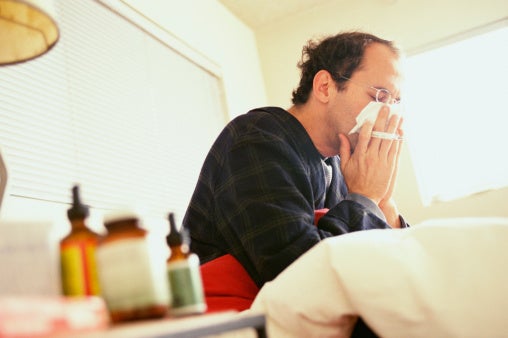Man flu is real: Scientists say men have weaker immune systems
The absence of a female sex hormone leaves men vulnerable to man flu and other respiratory illnesses

Your support helps us to tell the story
From reproductive rights to climate change to Big Tech, The Independent is on the ground when the story is developing. Whether it's investigating the financials of Elon Musk's pro-Trump PAC or producing our latest documentary, 'The A Word', which shines a light on the American women fighting for reproductive rights, we know how important it is to parse out the facts from the messaging.
At such a critical moment in US history, we need reporters on the ground. Your donation allows us to keep sending journalists to speak to both sides of the story.
The Independent is trusted by Americans across the entire political spectrum. And unlike many other quality news outlets, we choose not to lock Americans out of our reporting and analysis with paywalls. We believe quality journalism should be available to everyone, paid for by those who can afford it.
Your support makes all the difference.There is such a thing as man flu, with men less resistant to pneumonia and other respiratory illnesses, according to new research.
Scientists from Harvard University have discovered that the female sex hormone oestrogen fortifies the immune system, and men are suffering for its absence.
In the study, published in Life Sciences medical journal, a simple dose of oestrogen was capable of curing both male and female mice of bacterial pneumonia.
Professor Lester Kobzik at the Harvard University School of Public Health said female mice demonstrated increased resistance to infection, linked to the enzyme nitric oxide synthase 3 (NOS3) activated by the release of oestrogen.
After introducing the bacteria streptococcus pneumoniae into the lungs of mice, the research team found oestrogen treatment to accelerate recovery.
In another round of tests, scientists removed the gene response for the production of NOS3, an enzyme activated by oestrogen, and found the female mice had lost their resistance to infection.
It is hoped that this discovery could be used to improve resistance to common and serious lung infections and prevent flu from developing into pneumonia.
Professor Kobzik said: "Ultimately, this work could be especially useful in reducing risk of secondary bacterial pneumonias during seasonal or pandemic influenza.
"We were quite pleased that the work led us to NOS3-targeting drugs that are already available and that can indeed improve resistance to pneumonia in our mouse model."
Join our commenting forum
Join thought-provoking conversations, follow other Independent readers and see their replies
Comments